Articles and Publications
In this section you can find all the publications of EUROPEUM staff and collaborators. Press releases can be found in the About us section.
Policy Paper | Advancing Together or Drifting Apart? Reassessing the Transatlantic Partnership in a New Global Order
The transatlantic relationship is entering a pivotal moment. With the United States turning inward, global rivalries intensifying, and trust across the Atlantic under strain, Europe faces growing pressure to rethink its approach to security, energy, and technology. This paper explores where transatlantic cooperation continues to thrive, where it is weakening, and how Europe can translate strategic ambition into tangible action—before the next crisis tests the resilience of the alliance. An insightful read for anyone engaged in global policy and transatlantic affairs.

Report | Vision for the Czech Automotive Industry
On October 22, 2025, the EUROPEUM Institute for European Policy held a roundtable discussion in Prague on the future of Czech Automotive Industry. The meeting of representatives from the sector, government, and research confirmed that despite European challenges, the Czech automotive industry remains in good shape, with record production of 1.45 million vehicles in 2024.

Press release | Low-emission Materials for the Czech Automotive Industry
The EUROPEUM Institute for European Policy published a press release on 31 October 2025, presenting an analysis of material flows and recycling in the Czech automotive industry and highlighting the need for collaboration between automakers, steel producers, and recyclers to achieve low-carbon and circular solutions.

Report, Policy Paper | Low-emission materials for the Czech automotive industry
The Czech automotive industry remains one of Europe’s strongest, producing 1.45 million cars in 2024 and accounting for 12.7 percent of EU output, with more than 90 percent destined for export. This high level of integration into European and global supply chains creates both opportunities and vulnerabilities, especially given Czechia’s dependence on imported aluminium, battery materials and automotive-grade steel, and its reliance on German demand and Chinese supply.
Our estimates show that the sector’s material needs already reach around 260 kt of aluminium, 1.4 Mt of steel and 20 GWh of Li-ion batteries per year, and will increase further as electric vehicles approach a 60 percent share of production by 2030. Meeting this demand will require more than rising imports. It will depend on a functioning domestic market for high-quality scrap, progress on battery recycling and strategic investment in low-carbon materials. Upcoming EU regulations, including the ELVR, Battery Regulation, CRMA, CBAM and ESPR, will raise the standards for circularity and secondary material use, but Czechia still lacks a strategy to align with these requirements. Without clearer policy direction and investment in modern recycling and sorting infrastructure, the country risks increasing its reliance on high-carbon imports despite having significant potential to recover valuable materials at home.
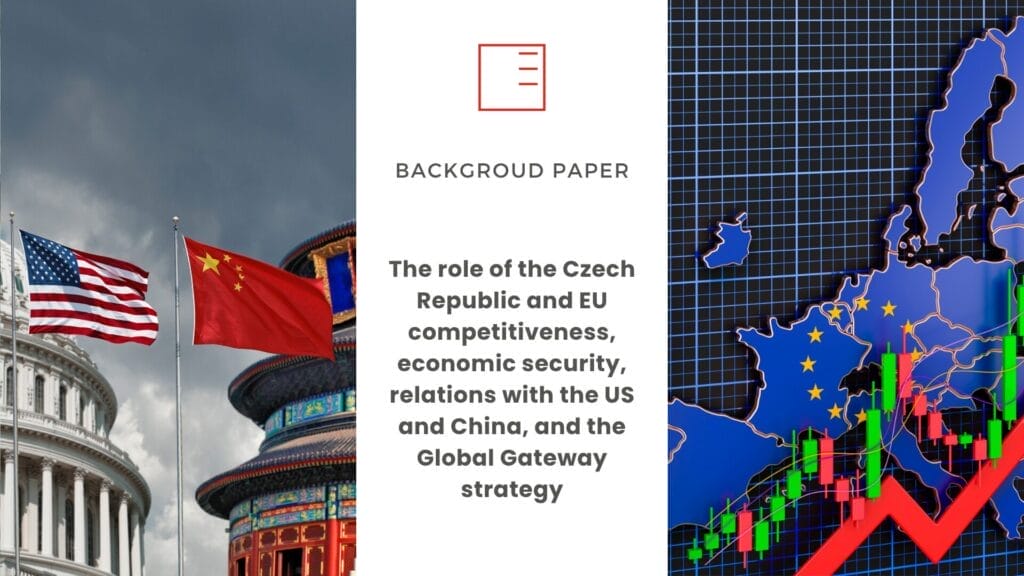
The role of the Czech Republic and EU competitiveness, economic security, relations with the US and China, and the Global Gateway strategy | Background paper of the National Convention on European Union
Economic security and competitiveness are becoming key issues for the European Union in order to maintain its global position and internal stability. The EU faces a long-term lag behind the United States in innovation and technology, while pressure from China and other economic rivals is growing. A new wave of American protectionism, geopolitical upheavals caused by Russian aggression, and the experience of the COVID-19 pandemic have exposed the vulnerability of the European economy and its dependence on external supply chains. The European Commission has therefore presented a set of initiatives – from the Competitiveness Compass to the Clean Industry Agreement – aimed at strengthening resilience, reducing dependence on third countries, and streamlining the business environment. The Global Gateway initiative, which aims to diversify European trade and supply relations through strategic investments and partnerships, is also an important tool for strengthening the Union's global role. Given the strong industrial orientation and openness of the Czech economy, it is essential for Czechia to actively engage in these debates and formulate its priorities within the European economic security strategy.
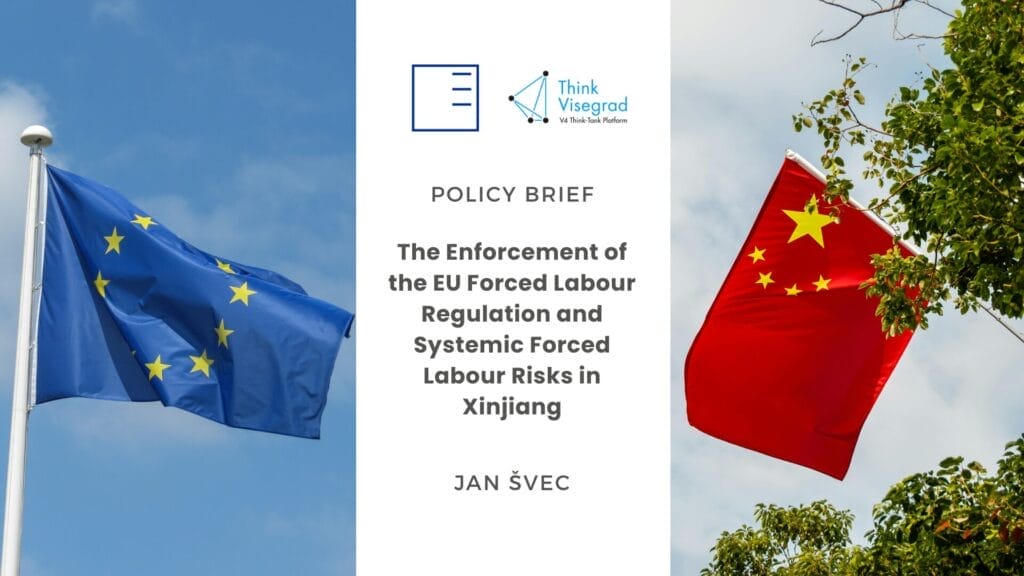
Policy Brief | The Enforcement of the EU Forced Labour Regulation and Systemic Forced Labour Risks in Xinjiang
At the end of November 2024, the European Parliament took a major step by adopting Regulation 2024/3015 banning products made with forced labour on the EU market. The ban, which will enter into force in December 2027, applies to the entire supply chain, with enforcement carried out by national authorities within the Union and by the European Commission in cases outside the EU. Although the measure has a global scope, it faces a number of challenges, particularly in relation to Xinjiang. Forced labour practices in the region have been repeatedly documented and acknowledged by both the International Labour Organization and the United Nations. At the same time, Xinjiang is a key supplier of solar panels, critical raw materials, aluminium, PVC, and cotton, while forced labour there often takes the form of state-organised mobilization outside internment facilities, which makes its detection especially difficult. For this reason, as noted by Jan Švec, Research Fellow at the Institute of International Relations in Prague, enforcing the Regulation will represent one of the most complex challenges for the EU’s trade policy.

Report | The Future of Transatlantic Relations: Between Unity and Uncertainty
On 19th June, the Brussels Office of EUROPEUM representing the Think Visegrad Platform organised a public event entitled ‘The Future of Transatlantic Relations: Between Unity and Uncertainty.’ The event took place at The Library Europe, Avenue de Broqueville 40, with a participation of 16 experts, researchers and civil society actors. The aim of the discussion was to critically assess the current state and future trajectory of transatlantic relations in light of shifting geopolitical dynamics, with particular focus on trade tensions, NATO’s evolving role, ideological divergence between the EU and the US, and external security challenges.

Evaluation Papers | Obstacles and Opportunities for Implementing the Platform Work Directive
These evaluation documents, prepared within the Platform Revolution project, address the challenges and opportunities faced by European countries in implementing the new EU Platform Work Directive, particularly with regard to worker classification and the presumption of employment.
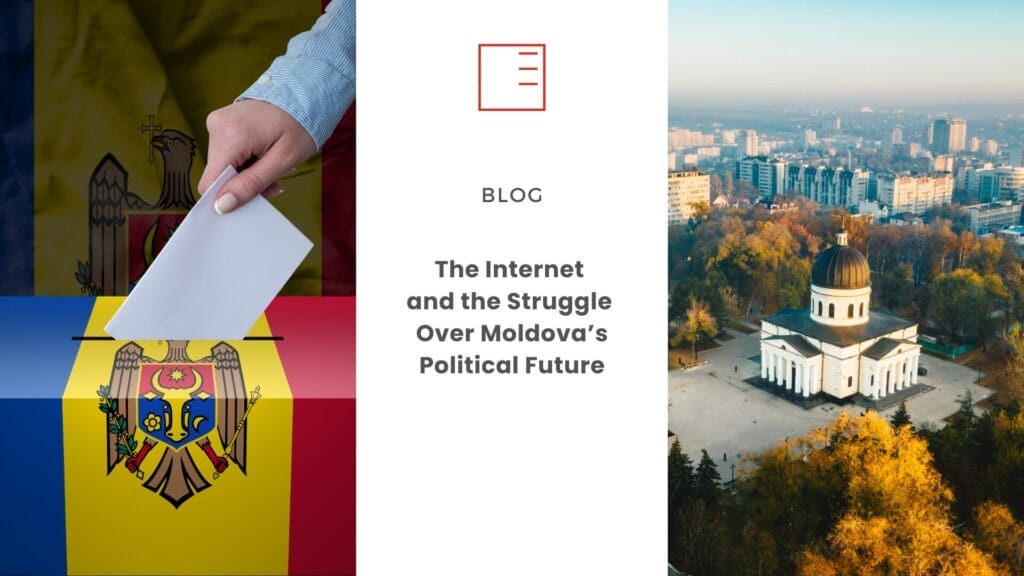
Blog | The Internet and the Struggle Over Moldova’s Political Future
Moldova stands at a pivotal crossroads as it approaches its September 2025 parliamentary elections, with the outcome set to shape the country’s orientation between deepening ties with the European Union or succumbing to the pro-Russian, Eurosceptic forces.
The political struggle is unfolding not only in official arenas but also across the landscape of digital media. How are online platforms shaping public debate? What impact might external information campaigns have on Moldova’s political future? Discover the answers in the full article by Anya Brown, a research assistant at EUROPEUM Institute.
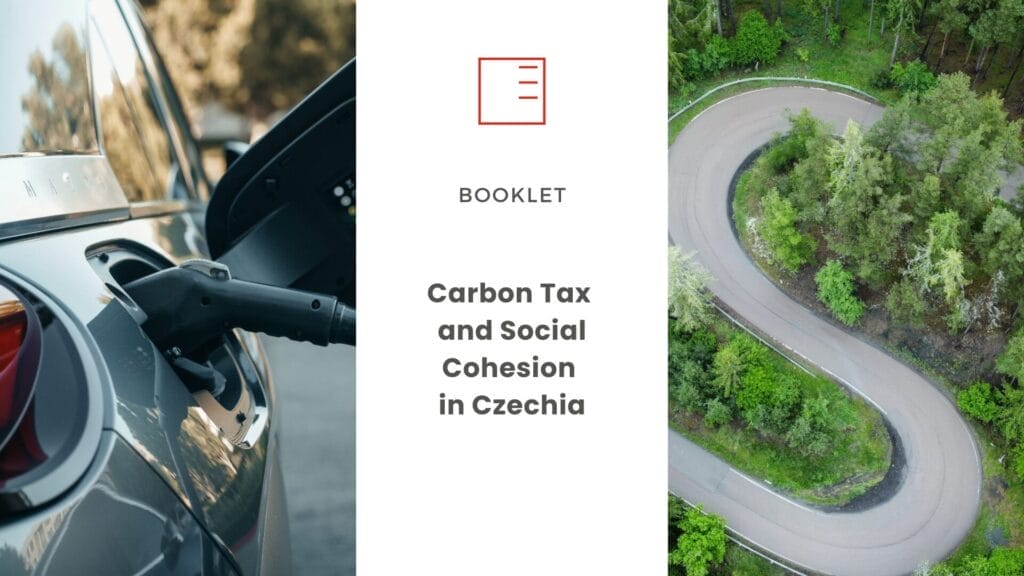
Booklet | Carbon Tax and Social Cohesion in Czechia
This brochure focuses on presenting facts about current strategies and their benefits not only for climate goals, but also for social cohesion. In particular, it uses the example of the expanded Emissions Trading System (ETS2) to illustrate possible ways of using revenues — through targeted investments that can help prevent deepening poverty and support the development of public goods.
The brochure was prepared as part of a media training seminar in the summer of 2025 and therefore reflects the current state of political affairs.

Blog | Choosing Sides? The UK Between Trump’s America and a United Europe
Almost a decade has passed since the Brexit referendum, but the UK is still grappling with the consequences of its departure from the EU. Touted by the likes of Nigel Farage as a glorious ‘independence day’, Brexit was supposed to unleash a ‘Global Britain’ – a great trading nation free to pursue a revitalised ‘special relationship’ with the US, amongst other goals. However, the confluence of factors that pushed 52% of voters to choose Leave in June 2016 belongs to a geopolitical reality that no longer exists.
Read the full blog by Imogen Wymer below!
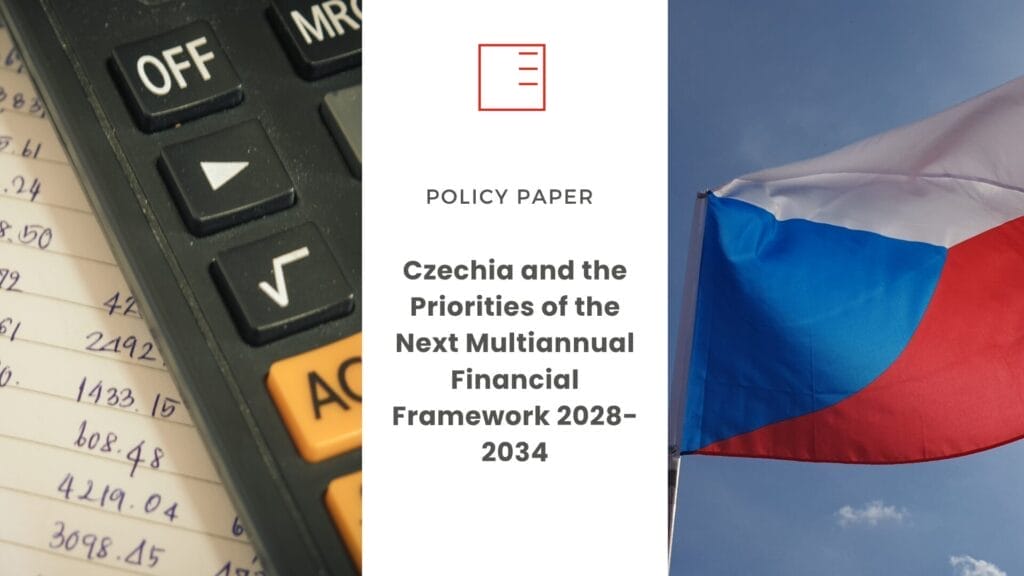
Policy Paper | Czechia and the Priorities of the Next Multiannual Financial Framework 2028-2034
On 16 July 2025, the European Commission presented its proposal for the next Multiannual Financial Framework (MFF) for the period 2028–2034, launching a process that will likely lead to lengthy negotiations between EU institutions and could last until the end of 2027. This policy paper by Filip Křenek (EUROPEUM) and Josef Bič (VŠE) analyses the discussions that preceded the proposal’s publication, highlights key elements expected in the upcoming MFF, and outlines the compromises policymakers will have to navigate during the negotiations. At the same time, the analysis offers specific recommendations for both Czech and European policymakers, taking into account the specific context of the Czech Republic as well as broader European dynamics.